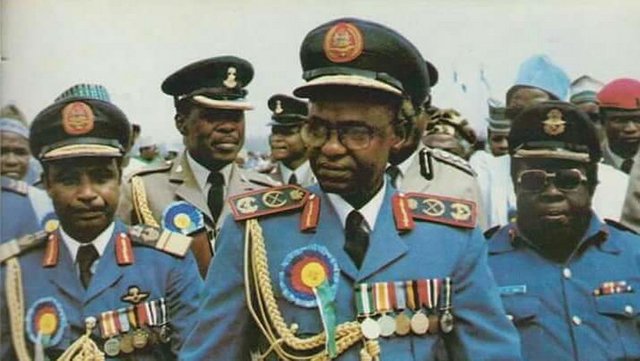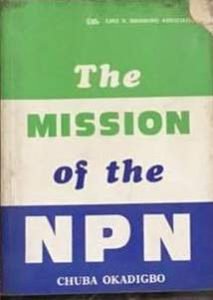
All eyes are on the Northern elite again but in what sense of the word? There was a time when this would have been an aimless question. That was when what Prof John Paden called the cohort in his biography of Sir Ahmadu Bello was on the move. By cohort, he was referring to the elements bonded together by British leadership constructivism at finishing schools spread across the North – Barewa, Keffi, Ilorin, Maiduguri, Katsina-Ala and so on. It used to be said that if you met one of them in Lagos and discussed an issue, you were likely to get the same opinion from the next one you meet in, say, Maiduguri who was not aware of the discussion in Lagos. This was not their expertise in conspiracy but the overarching direction of their grooming.

Even as a cohort, the Northern elite in his time was fragmented as the radicals and the ethnic minority leaders asserted themselves
This did not suggest that the cohort was such a harmonious, conflict free group. Rather, it was a “cohort where they fought like brothers”. That is the expression generally used in describing that aspect of them. The expression cannot but be a reference to the fact that there was no shooting of each other in the North as happened in the East during the civil war. Otherwise, the tussles between the Northern Elements Progressive Union, (NEPU) and the Northern People’s Congress, (NPC) as well as the United Middle Belt Congress, (UMBC) and the NPC were in no ways less severe than ‘Operation Wetie’ in the Southwest. The other sense in which the expression ‘fought like brothers’ made sense is the way nearly the entire Northern elite moved into the National Party of Nigeria, (NPN) in 1978. NPN almost got even Mallam Aminu Kano into the club. But even without Mallam Aminu Kano and his fellow politicians ‘of the radical tradition in the North’ in there, the NPN was still what one of its students calls a re-assembling of the leaders of the major fractions of the ruling class for the mission of shifting from ‘primitive accumulation of capital’ to ‘primitive accumulation of power’, a mission that also meant moving from regional sphere to the national level of accumulation.
Up to NPN, the cohort sense of the Northern elite still stood because the intellectuals in Balarabe Musa’s Government from 1979 to 1981, persistently held the NPN up as nothing but a power site owned by the Northern elite and that party players such as Chief Akinloye, Richard Akinjide, Dr. Chuba Okadigbo, Joseph Wayas and so on were no more than megaphones and ‘outsiders’. It is important to note the partisan context of some of these statements just as that does not render the claim all partisan. This is because aside from the PRP combatants, all the scholars who commented elaborately on the NPN also said the same or similar things but as scholars rather than partisans.
Claude Ake, for instance, contrasted the NPN with Chief Awolowo’s Unity Party of Nigeria, (UPN) by crediting the UPN with awareness and utility of defensive radicalism as well as the technical ability to manage (dependent) capitalism in a manner that would make Socialists, radicals and agitators in the labour unions to have nothing to protest about. That is the sense in which he also came about the conclusion that the UPN was, therefore, more ‘dangerous’ to Socialist democracy in Nigeria than any other parties.
From the men of action came a usually blunt testimonial on the NPN by General TY Danjuma, the military intellectual. Endorsing the coup that brought Gen Buhari to power, Danjuma said it was an idea whose time had come because they, (the troika) that handed over power in 1979 did not realise they "handed over power to nobody". While implicating all the parties for (electoral) malfeasance in the same magazine interview, he rated the NPN as the largest gathering of the worst human beings Nigeria could produce". In a separate magazine interview, he upbraided the late Adamu Ciroma for withdrawing from the race in 1978. He thought a Ciroma would have ran a more thorough going government. It all speaks to the controversy about what fractions thought of fractions within the Northern elite although what seems truer of Danjuma is his contempt for politics and politicians. In 1980, he said did not want Governor Lateef Jakande of Lagos State to take him to court but that the man was erecting cowsheds in the name of school buildings under the UPN 's Free Education programme. His 1998 statement that he would go on exile if Obasanjo were to loose the election was based on what standard he said he saw with Dr. Alex Ekwueme's sense of buildings for the National Institute for Policy and Strategic Studies, (NIPSS). With his stature, he can make any statement and get away with it. It makes the biography he promised worth waiting for, especially the section that might be dealing with the Nigerian elite whom he has interacted with as a professional soldier, business man, distant politician and philanthropist.

It is not everyone who agrees with the overarching image of the NPN. There are those who mention the fact that it rejected IMF conditionalities in 1982. And that it did this after an all night meeting at which insiders said no one slept. That no such thing has happened in any quarter in Nigeria since 1982 makes the NPN more interesting to them than might have been granted it. Two, it is also mentioned to its credit a more holistic conception of corruption even as critics question if the Shagari presidency would have been able to give teeth to that rule book. Lastly, the party’s slogan of “One Nation, One Destiny” is rated as a mark of sensitivity to the continuing need for endless imagining of the nation. As apt as the condensation of the NPN in terms of ‘primitive accumulation of power’, the question would be whether it didn’t compensate for what it lacked in ambitious transformative politics.
Whatever the NPN was, the Northern elite was a key factor there. From the discussion so far, the NPN reinforced the cohort image of the Northern elite. But it did not save that image. The NPN reinforced the image to the extent that Joseph Tarka, in particular, returned to base but NPN also interrogated the concept. It did so at several levels. One was in the PRP which took away Kano and Kaduna states from the list of NPN states. Two, the protest politics of minority ethnic groups expressed in the voting pattern in Plateau and Borno and, three, the coup that eventually swept off the NPN.
In fact, the NPN was the last station where the idea of the Northern elite as a cohort made sense. At the time the People’s Democratic Party, (PDP), came up in 1998, the most key actors were not Northern elite in that sense of the phrase but the Super Five or ‘the IRA wing of the PDP’, to quote IBB. Though not insensitive to Northern sentiments, those ones were too steeped in the balancing game to be regional warriors. The violent conflicts in the Middle Belt which became more regular and destructive had caused so much intra elite disaffection. June 12 crisis further aggravated the fragmentation of the Northern elite. Even as all tendencies and groups within it still managed to come together to try to find answers to the June 12 crisis, the idea of who should become president divided the Northern elite. One section went to Obasanjo while another, mainly ex-NPN ideologues, stuck with Dr. Alex Ekwueme up to the PDP Convention in Jos. The fragmentation went deeper under Obasanjo who was able to use his acquaintances or familiarity with the Northern establishment to carry along the different fractions. Still, the tension went up to where the question of who is Northern and who is not Northern crept up with certain appointments by Obasanjo. The cumulative impacts of these developments produced the 2011 disagreements in the North over Goodluck Jonathan candidacy and the post-election violence that marked the last implosion of the Northern elite as a cohort. In 2011, whatever was left was ruptured. General Danjuma’s 2018 pronouncement asking kith and kin to defend themselves or be prepared to die might be cited as the burial of the Northern elite as a concept. At that point, the fragmentation had reached catastrophe.
There are those such as General Yakubu Gowon who would not be expected to voice out any sentiments but, other than that, the break among the Northern elite is such that, today, it is no more than a roundabout manner of speaking which the last segment of this piece will elaborate upon. It is because the Northern elite has scattered that every issue in the North easily escalates into a crisis, the most current manifestation of that being in the handling of herdsmen violence. The third and concluding segment of this series will focus on how that played out.
Posted from my blog with SteemPress : https://intervention.ng/16050/